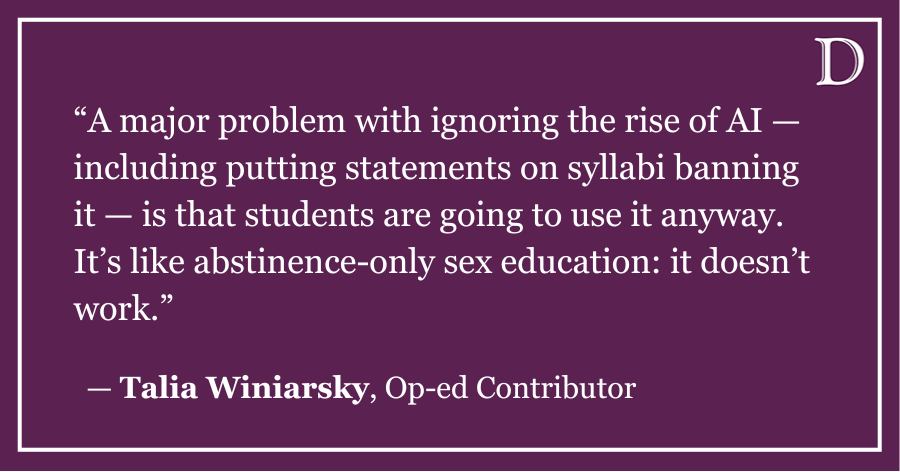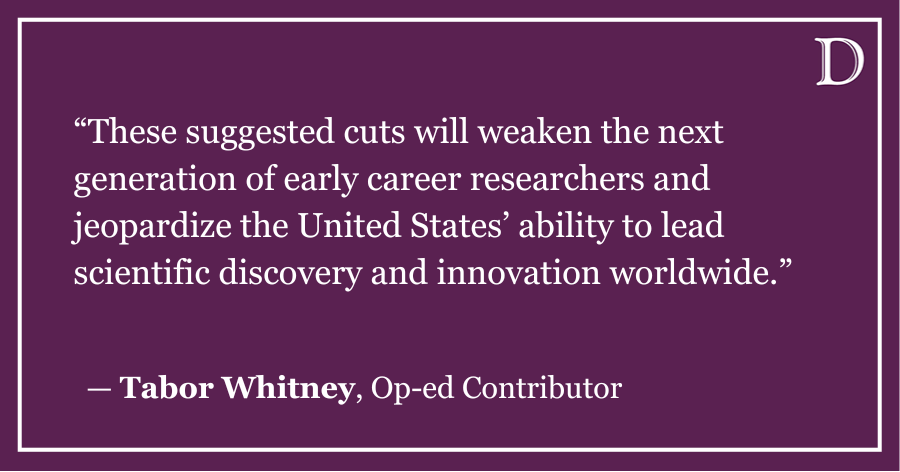Content warning: This article includes mentions of disordered eating and sexual assault.
My TikTok algorithm knew that I was hungry.
It was November, and I was abroad in Madrid. After a bad bout of food poisoning, I was experiencing chronic stomach aches. My solution was to eat as little as possible — if there was nothing in my stomach, it couldn’t hurt.
During that time, I unsurprisingly became obsessed with my hunger and food. Perhaps my thumb lingered a second too long on videos about these topics, but soon enough, my feeds on both Instagram and TikTok were flooded with videos on how to become thinner.
I had accidentally waded into the waters of SkinnyTok, and wanted to get out before it lurched me into its toxic riptide. I clicked “not interested” over and over again until I stopped seeing this type of content.
It’s not a revelation to say that the internet is a sinister place, especially for women. Rightfully so, this issue has earned newfound attention both politically and culturally. On Monday, the House passed the bipartisan “Take it Down Act” that criminalizes non-consensual sexual images, including those generated by artificial intelligence.
It’s also infiltrated works of art. “Adolescence,” which premiered in March, features a boy radicalized by incel online communities to kill a female classmate. And, of course, much has been written about men like Andrew Tate, who has said things like, women “bare some responsibility” for their sexual assault, to his millions of followers on X.
What is missing from this conversation, however, is the violence that comes from women themselves, inflicted upon other women. Anyone who has seen headlines from the 2000s, including the ridicule of women like Kate Winslet and Jessica Simpson, knows that body-shaming has been mainstream in popular culture for a while.
The key difference, today, is the sheer amount of content, and how overwhelming it is — teenagers spend an average of over eight hours a day on their screens. The factor of time is compounded by the algorithm, which collects extensive data and has a bias towards promoting extreme videos, pushing this content onto young people in a way that is difficult to escape.
Unsurprisingly, a 2024 study found that TikTok’s entrancing algorithm may exacerbate eating disorder symptoms. While I considered not writing this column because TikTok isn’t seen as a serious intellectual endeavor, I would argue that it’s hard to overstate how much social media has affected how young people think about a range of subjects, including their bodies.
While the women creating content for SkinnyTok would claim that they are helping viewers achieve their physical goals and become healthier, I see it as a violent act. First, let me offer a caveat: There are some people who will tell you that they don’t care what they look like. I would be lying to you if I said that. I do care, and I accomplish this through exercising when I can and eating healthy, balanced meals.
This, however, is not what women on SkinnyTok are telling women to do. “You don’t need a treat, you are not a dog” and “When your stomach growls, it’s applauding you” are popular refrains that I see as clearly harmful, rather than promoting health.
These ideas aren’t limited to TikTok, but permeate how we think about health more broadly along political lines. When you read liberal Ms. Magazine, for example, the articles listed under the “Health” section are: “Medicaid Cuts Will Raise Costs for Millions of Women” and “The Casualties of Title X Cuts: Cancer Screenings, Fertility Treatments and Sex Ed.”
But when you read Evie Magazine, a conservative publication for women, their health section focuses primarily on the supposed appearance of health: being thin. Currently, their top headlines include, “Weight Loss Tips and Tricks Short Girls On TikTok Actually Swear By,” “The Top Slim Secrets of Slavic Women” and “How I Lost Weight With Intermittent Fasting According to My Cycle.”
Evie deifies the most prolific of SkinnyTok creators. One of these people, Liv Schmidt, who has over 300,000 followers on Instagram, has suggested that when women become hungry at night, they should consider offering oral sex to their (implied male) partners instead of snacking. Evie, meanwhile, praises Schmidt for her “discipline.”
At the same time as online algorithms suggest that some female bodies are of higher worth than others, the government is chipping away at women’s bodily autonomy. The United States has the highest rates of maternal mortality compared to other high-income countries, but the federal research cuts will make it so that scientists can’t rectify this problem.
Furthermore, 80% of people with autoimmune diseases are women, but with less research, we won’t be able to find out exactly why. The administration is also slashing Planned Parenthood funding, which supports crucial health services like STI testing.
While SkinnyTok influencers themselves do not veer into politics, it is an inherently political act to label one type of female body as more worthy than the rest. The presidential administration, too, seeks to reward one type of female body: the kind that produces a lot of children. They’ve floated ideas including scholarships for women who bear many children, and even awarding medals.
These two ideals — the skinny woman and the fertile woman — while both espoused by conservative voices, are paradoxical; women are both supposed to drive themselves to hunger, while also somehow maintaining their fertility. Nevertheless, in their minds, these two characteristics aren’t mutually exclusive — a woman is supposed to be skinny, in part, to attract the man who will become the father to her children.
I’m not a conspiracy theorist, but I can’t help but notice that both TikTok and the government want to control women’s bodies, and the former may serve as a distraction for the latter. It’s hard to hear the news over your stomach growling. Anyone who has been hungry — involuntarily or voluntarily — knows that it’s an all-consuming sensation.
The internet is giving young women eating disorders, which beyond causing physical damage, forces larger swaths of women to draw inward, focusing on themselves rather than the world around them.
At a time when there is one specific type of idealized woman, it is an act of resistance to pursue whatever type of femininity you desire. If you are a woman who wants to be slim and have six children, I welcome that. But it should be a healthy, individual choice, not because the algorithm told you so.
Talia Winiarsky is a Weinberg junior. She can be contacted at [email protected]. If you would like to respond publicly to this op-ed, send a Letter to the Editor to [email protected]. The views expressed in this piece do not necessarily reflect the views of all staff members of The Daily Northwestern.

















